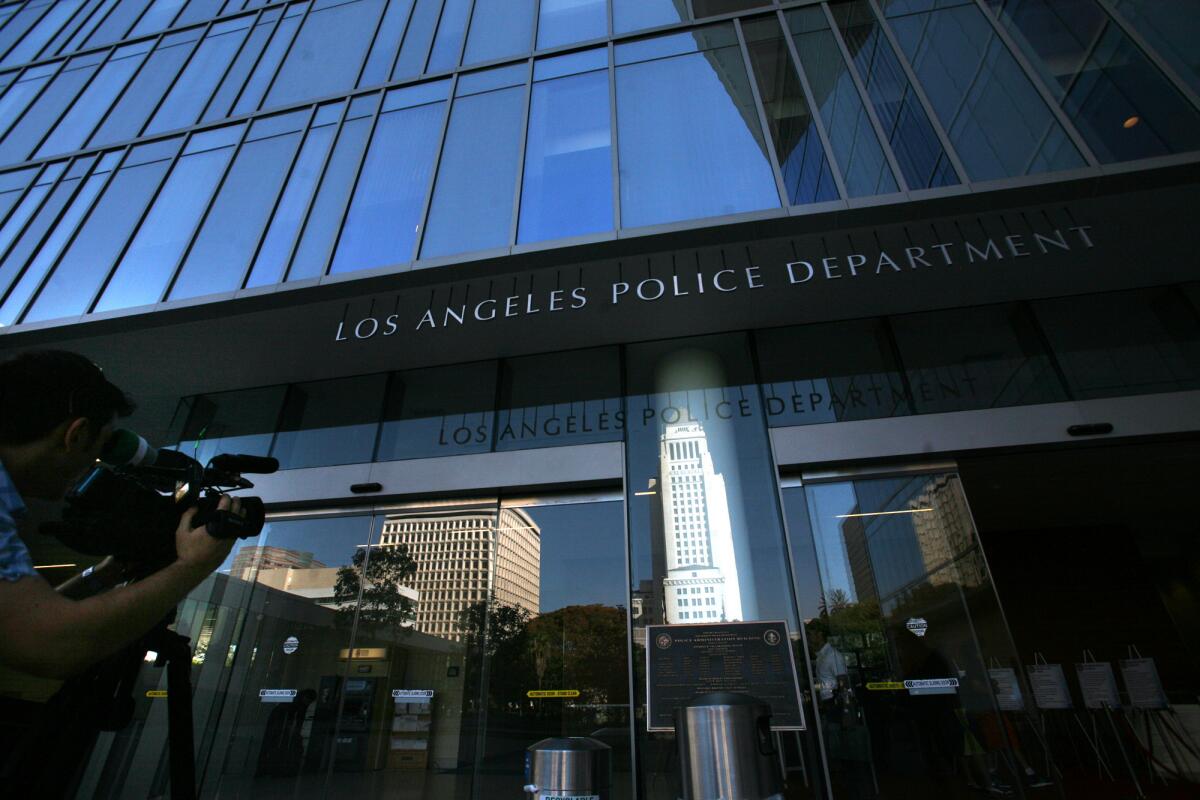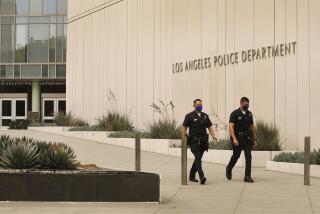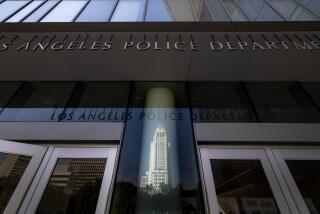Officers falsely portrayed people as gang members, falsified records, LAPD says

More than a dozen Los Angeles police officers with the elite Metro Division are being investigated on suspicion of falsifying information they gathered during stops and wrongly portraying people as gang members or associates, according to multiple sources.
The officers, assigned to special patrols in South Los Angeles, are suspected of falsifying field interview cards during stops and inputting incorrect information about those questioned in an effort to boost stop statistics.
In at least one case, body camera and car recordings did not match the accounts in the field interview cards, according to the sources.
Some of the officers have been removed from active duty, the sources said.
Chief Michel Moore on Monday reached out to some civic leaders in South L.A. to explain the investigation.
“An officer’s integrity must be absolute. There is no place in the Department for any individual who would purposely falsify information on a Department report,” Moore said in a statement.
The LAPD issued a lengthy statement on Monday explaining that the investigation began after a San Fernando Valley mother received a written correspondence from the department in early 2019 informing her that her son had been identified as a gang member. She believed her son was misidentified and reported the mistake to a supervisor at a nearby police station.
According to the LAPD, the supervisor immediately reviewed the circumstances, including “body worn video and other information, finding inaccuracies in the documentation completed by an officer.”
The parent was notified that her son would not be identified as a gang member and any references to him as such were removed, the department said. The LAPD then launched an internal investigation into the actions of three involved officers.
“Over the course of several months, Internal Affairs investigators have continued their investigation resulting in identifying additional inaccuracies in the documentation on field interview cards completed by those officers as well as others,” the LAPD statement read.
All of the officers involved were assigned to Metropolitan Division crime suppression duties at the time the inaccurate documentation was completed, the statement continued. “Given the serious nature of the alleged misconduct, all involved officers have been assigned to inactive duty or removed from the field.”
The Los Angeles Police Protective League, the union that represents officers, said in a statement that it was “aware of reports of discrepancies contained on a limited number of field interview cards that the department is looking into.” It also expressed confidence that Moore “will oversee a thorough and fair process to determine the facts and to also ensure that any impacted officer is accorded his or her due process rights.”
A Times investigation published last January showed that Metro officers stopped African American drivers at a rate more than five times their share of the city’s population. To combat a surge in violent crime, the LAPD doubled the size of its Metropolitan Division in 2015, creating special units to swarm crime hot spots.
Nearly half the drivers stopped by Metro are black, which has helped drive up the share of African Americans stopped by the LAPD overall from 21% to 28% since the Metro expansion, in a city that is 9% black, according to the analysis.
In response, the LAPD announced last fall it would drastically cut back on pulling over random vehicles. At the time, Moore said Metro’s vehicle stops had not proved effective, netting about one arrest for every 100 cars stopped, while coming at a tremendous cost to innocent drivers who felt they were being racially profiled. Officials said Metro crime suppression officers, who number about 200, would instead track down suspects wanted in violent offenses and use strategies other than vehicle stops to address flare-ups in crimes such as burglaries and shootings.
More to Read
Start your day right
Sign up for Essential California for news, features and recommendations from the L.A. Times and beyond in your inbox six days a week.
You may occasionally receive promotional content from the Los Angeles Times.








